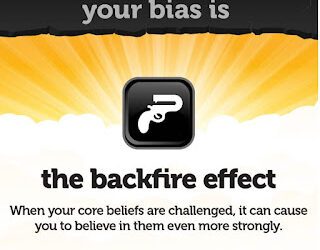
or they’ll never get to where you are.
Part I of this article discussed paraphrasing as a secret weapon that anyone can use in apologetics or evangelism. All you have to do is repeat what the other person said in your own words. When done correctly, this method is so effective that often times the other person will reveal some personal details about their thoughts, beliefs, or actions, which can lead to some awkward moments.
Knowing this will happen is helpful to prepare you, but you also need to respond the correct way so that you don’t shut down the conversation and damage the relationship. To help you be prepared, some possible confessions that come to mind are past or current affairs, murder, abortion or paying for someone to have one, having an intersex condition, same-sex attraction, being transgender, past sexual abuse, being in an open marriage, rape, war crimes, time in prison, drug use, and many many more.
Whatever you think is the worst possible thing a person could do, imagine someone confessed that to you and keep it in mind as you read the rest of this article (this is assuming they’ve served their time or are no longer a threat in potentially dangerous or criminal situations).
Super-Secret Tip
This “bonus” tool is always a good thing to practice, but it’s mostly necessary because paraphrasing is so effective. If and when someone shares something with you that’s very private, you have to prevent yourself from reacting with a negative tone of voice, look, or otherwise critical manner. If you show any trace of disapproval, the conversation will shut down immediately and the relationship will probably be damaged.
Psychologists call this unconditional positive regard, which is responding in a positive or neutral manner no matter what the person says. This gives people difficulty because they feel like it’s agreeing with or condoning wrong beliefs or actions, but that’s a misunderstanding of unconditional positive regard, which I think becomes more clear in the example below. The hardest thing to control for most people in these situations are facial expressions and other types of body language, but automatic reactions like blurting out criticisms, letting out a brief laugh, or an audible gasp also have to be controlled.
Example
Abstract ideas can be hard to put into practice or understand at a practical level so here’s an example. If someone were to confess to me that they are having an affair, I can still respond with unconditional positive regard while not compromising morality.
The first way to practice unconditional positive regard is by controlling my emotional reactions, even if I am disgusted by the confession. When I speak, I can start by thanking them for their honesty and for trusting me with such personal details. I can also paraphrase what the person said to make sure I understand the situation. If they didn’t already say how they feel or what they think about the situation, I can ask them these questions, too. The whole time they are speaking, I am careful not to look at them critically or say anything critical about them.
How can I point out their sin and need for repentance? I can do this through questions. They probably already know it’s wrong and perhaps they are trying to rationalize it or just are in a state where they don’t care. I can ask them what the Bible says about sexual immorality, what they think about it, and why. When they say things that are true such as “I know this is wrong,” I can affirm them for not trying to rationalize their actions. Whatever they say, there is probably something I can affirm.
At some point, they may ask me what I think about the situation or I may feel the need to express that for whatever reason. I can do this by saying I think their actions are wrong, but also making it clear that I am willing to listen and help them without judgment. This last part is often most difficult, but if my ultimate goal is to get them to stop the affair and repent, non-judgmental listening will be more effective than criticism and condemnation.
Conclusion
When someone share’s an embarrassing or controversial detail about their life, they almost always already know you disapprove or might think they’re abnormal so you don’t need to respond with critical comments. This is true even when every bone in your body might be telling you to point out what you think their errors are (and it’s probably your reaction telling you to do this, not the Holy Spirit’s). Instead of correcting or debating, focus on making sure you understand their story and they feel safe. Once you’ve done this, you will begin to earn the right to respond, which is necessary if you actually want your words to make a positive impact on the other person.
We all have issues, some more severe than others and some just more taboo in our culture. Expecting someone to have their issues worked out before you will accept them is hypocritical and the exact opposite of what Jesus did. It’s also a highly ineffective strategy, which also damages the reputation of all Christians.
Check out my articles on persuasive apologetics for more tips on increasing your effectiveness.



